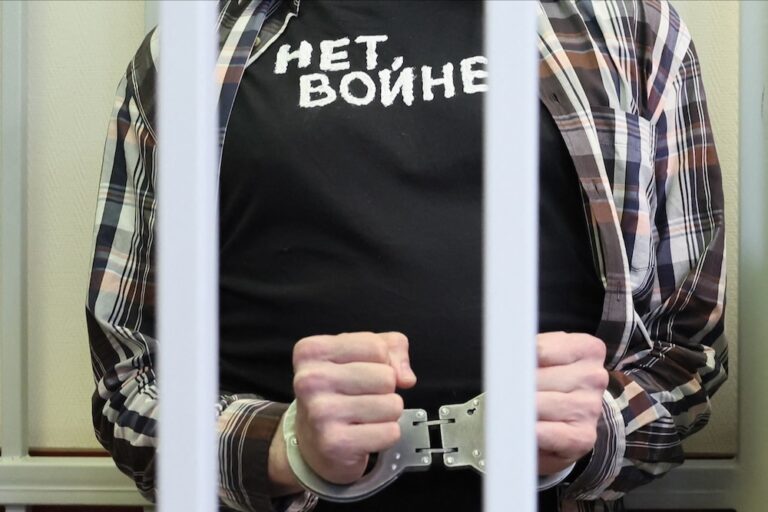(RSF/IFEX) – In a letter addressed to President Vladimir Putin, RSF vigorously protested the threats issued by the spokesperson of the Ministry of Information against media considered to be “hostile to Russian interests.” “These remarks seriously contradict your constitution, which guarantees freedom of expression, and constitute a flagrant violation of the commitments made by Russia […]
(RSF/IFEX) – In a letter addressed to President Vladimir Putin, RSF vigorously protested the threats issued by the spokesperson of the Ministry of Information against media considered to be “hostile to Russian interests.” “These remarks seriously contradict your constitution, which guarantees freedom of expression, and constitute a flagrant violation of the commitments made by Russia within the Council of Europe,” declared Robert Ménard, the organisation’s secretary-general. RSF also asked the Russian head of state to respect his press freedom commitments.
According to information obtained by RSF, Yuri Akinchine, spokesperson for the Ministry of Information, declared on 16 May 2000 that the Russian authorities “did not have at their disposal the means to influence media that act against the interests of Russia.” He added that the Ministry of Information envisaged giving itself the means to suspend such media, by including the notion of “abuse of freedom of speech” in a new bill. Akinchine also vigorously criticised the international radio service Radio Liberty / Radio Free Europe for its coverage of the war in Chechnya. The day before, a high official in charge of press affairs, Andrei Romanchenko, had judged the position of Radio Liberty to be “hostile to the state.”
RSF notes that Radio Liberty’s correspondent Andrei Babitsky, winner of the OSCE’s prize for journalism and democracy, remains under house arrest and threatened with a double charge for “participation in an armed band” and “use of a false passport”. Arrested on 16 January by federal forces in Grozny, the journalist was detained at the Tchernokozovo filtration camp, where he was subjected to bad treatment (see IFEX alerts of 10, 3 and 1 March, 28, 10, 9, 8, 7, 4, 2 and 1 February, 31 and 28 January 2000). Commenting on his case, Putin had stated that “he is clearly in the service of the enemy, what he does is much more dangerous than firing a hail of bullets with automatic weapons.” There has been a notable increase in the Russian authorities’ hostile statements toward representatives of the press working in Chechnya, notably toward foreign correspondents, accused of wanting to discredit the action of Russian forces. About ten of them have been questioned, interrogated and removed from combat zones. Access to Chechnya remains subject to attribution of accreditation, issued by the military forces and impossible to obtain.


